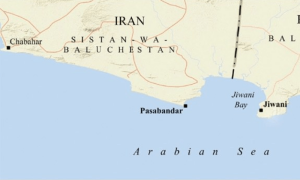ISLAMABAD, Jan 23: The Continuous Funding System (CFS) Mark-II is ready to be implemented in the next three to four weeks, while President Musharraf is likely to sign the ordinance on the demutualisation of stock exchanges within 10 days.
This was stated by Securities and Exchange Commission of Pakistan (SECP) Chairman Raziur Rehman while speaking at a press conference here on Wednesday.
The new version of CFS will enable banks to directly provide funds to investors — a job so far only performed by brokers. At present, CFS is capped at Rs55 billion whereas under the new system of CFS MK-II unlimited financing would be available to the investors.
About the approval of the Stock Exchanges (Corporatisation, Demutualisation and Integration) Ordinance 2008, by the cabinet on Tuesday, Mr Razi said: “Now the stock exchanges are free of the influence of brokers”.
But he was quick to add that he did not mean “100 per cent free” as brokers would still hold the 40pc strategic stakes in the share trading and hence enjoy considerable influence.
The chairman seemed very optimistic and said the segregation of trading rights from that of the ownership would improve the image of Pakistani bourses abroad and would encourage strategic investors and local financial institutions to buy stakes in Pakistani stock exchanges.
After the demutualisation, brokers will have the right to hold 40pc of the shares, general public 20pc shares, while the remaining 40pc by strategic investors and financial institutions.
While the demutualisation process would be initiated within the next four months, the completion of the whole process was likely to take a year or so, Mr Razi said in reply to a question based on general fears that the whole process may take several years in the same way as the approval of the draft demutualisation law took more than five years.
He hoped the three stock exchanges would meet the deadline of being ready for the implementation of the ordinance within 119 days of its approval by the cabinet to move the process ahead.
He said stock exchanges from London, Norway, Korea and Dubai had shown interests in holding stakes in the Pakistani bourses, a move that would give depth to the local market and diversify its outlook with the launching many new products, some of which were already in the pipeline.
But, he also made it clear that investment by foreign exchanges would greatly depend on the political stability at home.
In order to valuate their own assets, the Karachi, Islamabad, and Lahore stock exchanges have hired some international banks on their own. The KSE has hired the services of Deutsche Bank for evaluating its tangible assets. In the next six months, the Initial Public Offerings (IPOs) of the shares of the three stock exchanges would be ready.
In reply to a question, Mr Razi said worldwide about 20 stock exchanges had so far been demutualised and the tempo of acquisition of stock exchanges by other bourses was high.
He said demutualisation would enable officials of the Pakistani bourses to work in foreign bourses and the latter’s office-bearers to perform in Pakistani stock exchanges and share their skills with the local officials.
He said the ordinance restricted any initial shareholder, a member of the general public or Trading Rights Entitlements (TRE) certificate holders to hold more than one per cent of the share of the stock exchange and financial institutions to keep more than five per cent of shareholding.
Replying to another query, he said now the all the dormant seats – some 50 in KSE, 80 in Islamabad Stock Exchange (LSE) and 70 in Lahore Stock Exchange (LSE) should be reactivated by year 2011. Otherwise, such dormant seats would have to be sold out.












































